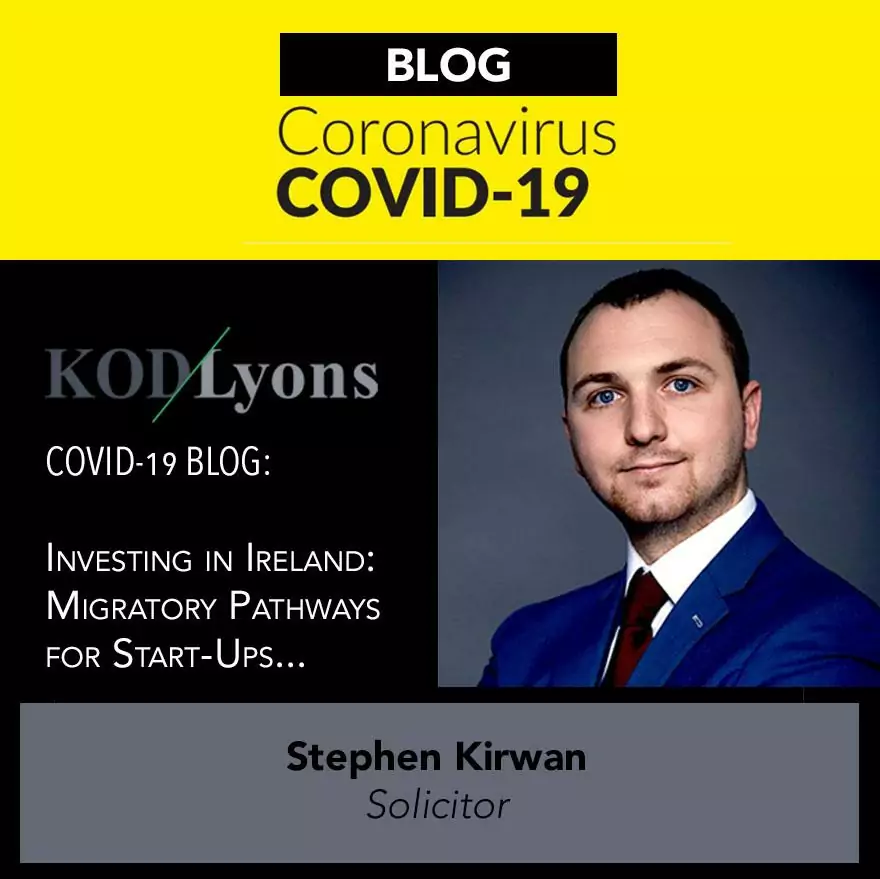The Economic Migration Network recently published their research paper Migratory Pathways to Ireland for Start-ups and Innovative Entrepreneurs. This short post discusses some highlights of that paper.
The Start-up Entrepreneurs Programme (STEP)
In order to evolve as an economy, it is essential to foster an environment of innovation and integration. The Start-up Entrepreneurs Programme (STEP) was launched in 2012 aiming to stimulate productive investment in the State with ‘High Potential Start-Ups’ (HPSU) from non-EEA countries. Ireland was amongst the leaders in developing this type of programme and now 13 EU Member States have established their own programmes. Ireland is an attractive prospect for investment with a high level of education, a workforce proficient in the English language and close proximity to many multinational organisations.
These types of programmes are strategically in line with EU policies to address labour market shortages and foster a business-friendly environment for non-EEA investment. STEP could create high value jobs and promote innovation.
In Ireland, an applicant submits their business plan and must also comply with the following requirements[1]:
- Evidence of €50,000 or more in funding[2]. More than one principal may apply with the second and subsequent principals required to demonstrate access to €30,000 each
- The venture should introduce a new or innovative product or service[3]
- Capability of creating 10 jobs in Ireland and realising €1 million in sales within three to four years of starting up
- An experienced management team
- Headquartered and controlled in Ireland
- The venture should be less than six years old
As one of the main objectives of this type of programme is to stimulate foreign investment in the Member State, all 13 Member States require that the business be innovative, scalable and have an added value for the national economy and business environment.
STEP in other EU Member States
Minimum level of capital – As part of a review of the programme, in 2014 Ireland reduced the minimum level of capital from €75,000 to €50,000 in an effort to boost application numbers. A minimum level of capital is required by just 5, including Ireland, of the 13 Members States implementing this programme.
Number of Applications – The number of applications and success rate of those applications is relatively low with just 42 applications in 2018[4]. This in comparison to other EU Member States in 2018, with Estonia receiving the highest number of applications at 783 and Spain second highest with 305 applications.
Processing Time – In Ireland, the processing time of applications takes on average 3-4 months. From the information provided, this appears to be a far longer period of time than other EU Member States with a maximum processing time of 10 days in Estonia and Spain and 1 month in both Italy and Lithuania.
Employees – In Ireland, employees do not form part of the initial STEP application and must apply for a General Employment Permit or a Critical Skills Employment Permit. In certain limited circumstances a dispensation may be availed of. A special visa and residence permit to admit third-country national start-up employees currently exists in Cyprus, Estonia, France and Portugal. In 2020, the Netherlands are introducing a pilot scheme for key personnel[5].
Residence Permission – Residence permission[6] is initially granted for two years and may be renewable for a further three years. Other EU Member States follow a similar pattern, with the exception of Estonia, where the temporary residence permission can be extended for up to ten years at a time.
After five years residence in Ireland, participants will be eligible for long term residence in the State. The applicant may also be granted a multiple entry visa for this duration allowing the application to reside in Ireland travel freely to Ireland for the duration of the permission.
Family members – In contrast to a general employment permit, successful STEP applicants may be accompanied by their immediate family. Both the applicant and their immediate family members will receive a Stamp 4 residence permission[7]. This means family members can work and study in Ireland for the duration of this permission.
‘Bootcamp’ – An optional pre-year attendance at an incubator programme or innovation ‘boot-camps’ was introduced in 2014 to prepare an application for STEP. Going forward, participation will be mandatory for all newly established start-ups wishing to apply to STEP in line with the Netherlands, Portugal and the UK.
Going Forward
EMU reports that although Ireland was a forerunner with the introduction of STEP, awareness of the programme is low. Ireland is an attractive prospect for investment and offers a favourable package to successful STEP applicants. However, the report notes that migrant start-up businesses face the same issues as domestic start-ups in accessing finance and scalability. Further development and dedicated promotion and advertising of the programme may help to bolster the profile of STEP and increase application numbers.
Should you require any more information in relating to the STEP Scheme do not hesitate to contact a member of our Immigration Team at 01-6790780 or by emailing Stephen Kirwan at stephen.kirwan@kodlyons.ie
[1] https://www.irishimmigration.ie/wp-content/uploads/2020/01/STEP-Guidelines.pdf
[2] Funding may be secured from one or a number of the following sources – their own resources, a business loan, business angel/venture capital funding, or grant from an Irish State Agency
[3] Scheme is not intended for retail, personal services, catering or other businesses of that nature. All applications are considered on their own merit
[4] EMN reports 435 applications between 2014 – 2018 with 129 successful applications
[5] https://www.rijksoverheid.nl/documenten/kamerstukken/2019/07/01/tk-verblijfsregeling-voor-essentieel-personeel-van-start-ups
[6] Stamp 4 permission
[7] Stamp 4 requirements apply ie persons must have private health insurance and may not have recourse to public funds
Get in touch
Leaders in our field and winners at the Irish Law awards we have proven expertise in immigration and international law, child and family law and personal injury litigation.
Tel: +353 1 679 0780
Email: info@kodlyons.ie








